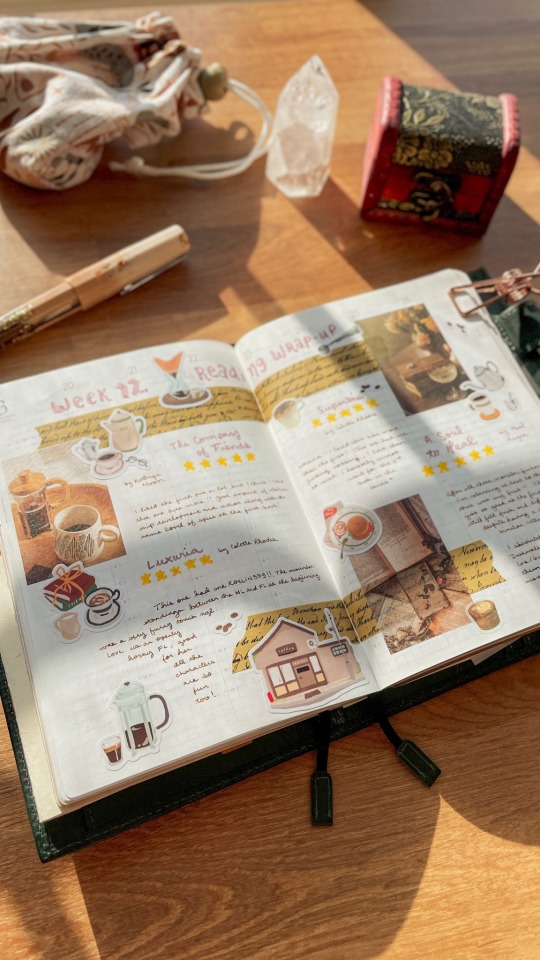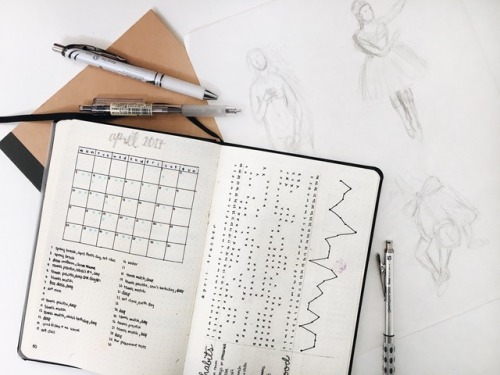✧・゚: ✧ tag Yourself: Classes At Hogwarts ✧:・゚✧
✧・゚: ✧ tag yourself: classes at hogwarts ✧:・゚✧
potions: rainy days, ambition, old textbooks, staying up all night, dark circles, high ponytails, sharp smiles, red lipstick, denim jackets
divination: tarot cards, long dresses, crystals, birth charts, black lipstick, dancing under the moon, lighting candles, space buns, constellations
history of magic: open books, messy buns, castles, filled notebooks, handwritten poems, architecture, studying in the library, cups of tea
charms: soft laughter, braids, mom jeans, fairy lights, fresh sheets, layered necklaces, sparkly lipgloss, watercolour paintings, quiet voices
care of magical creatures: holding hands, sunflowers, cinnamon, baked cookies, freckles, golden highlighter, movie nights, campfires, hot chocolate
defense against the dark arts: city lights, thunderstorms, winged eyeliner, ripped jeans, concerts, tattoos, silver jewellery, impulsiveness, dark eyeshadow
ancient runes: learning languages, iced coffee, travelling, polaroids, scrap books, fading tanlines, walking along the beach, to do lists, postcard collections
herbology: pine trees, dried herbs, taking a walk in the woods, round glasses, tangled hair, flower crowns, shy laughs, going out to protest, cozy sweaters
More Posts from Oliviasstudyblrshit and Others
Hey, don’t cry. Free online database of Japanese folk lore


new city // new study spot // august 22
Translation Masterpost
So you want to be a translator: online resources and books for translation students. Aside from translation specific resources, there are also related materials you can look into to improve your work and knowledge. Some Interpreting material in here as well.
As a disclaimer, I have not read all of these books (yet). The most highly recommended will be bolded. Keep in mind I am entering my second year in university and have much left to discover. Feel free to suggest titles, blogs and websites for the masterpost!
I will be linking this masterpost in my sidebar and updating it often. Remember to check book ratings and reviews before purchasing!
Translation Books:
A Practical Guide to Localization by Bert Esselink
Becoming A Translator by Douglas Robinson
Companion Book for Translators and Interpreters: 100+ Key English-Spanish Medical Terms by José Luis Leyva
Companion Book for Translators and Interpreters: the 1000+ Key English-Spanish Legal Terms You Will Need to Know by José Luis Leyva
Conference Interpreting by Andrew Gillies
Experiences in Translation by Umberto Eco
Exploring Translation Theories by Anthony Pym
Found In Translation by Natally Kelly and Jost Zetzsche
How to Succeed as a Freelance Translator by Corinne McKay
In Other Words: A Coursebook On Translation by Mona Baker
Introducing Translation Studies by Jeremy Munday
Introduction to Court Interpreting by Holly Mikkelson
Is That A Fish In Your Ear? by David Bellos
Maintaining Your Seocond Language by Eve Lindemuth Bodeux
Note-taking for Consecutive Interpreting by Andrew Gillies
Os Tradutores na História by Jean Delisle
Research Methods in Interpreting by Sandra Hale and Jemina Napier
Routledge Encyclopedia of Translation Studies by Mona Baker and Gabriela Saldanha
The Entrepreneurial Linguist: The Business School Approach to Freelance Translation by Judy and Dagmar Jenner
The Poetics of Translation by Willis Barnstone
The Prosperous Translator by Chris Durban
Theories of Translation: An Anthology of Essays
Thoughts on Translation by Corinne McKay
Translating Literature by André Lefevere
Translation: A Multidisciplinary Approach by Juliane House
Translation, History & Culture by Susan Bassnet
Translation Quality Assessment: Past and Present by Juliane House
Why Translation Matters by Edith Grossman
19 Ways of Looking at Wang Wei: How A Chinese Poem Is Translated by Eliot Weinberger and Octavio Paz
Translation Books in Portuguese:
A Tradução Literária por Paulo Henriques Britto
A Tradução Vivida por Paulo Rónai
Conversas com Tradutores por Ivone C. Benedetti e Adail Sobral
Da Tradução Automática à Tradução Manual por Liliana Pereira
Escola de Tradutores por Paulo Rónai
Fidus interpres por Fabio M. Said
Guia Prático de Tradução Inglesa por Agenor Soares dos Santos
Línguas, Poetas e Bacharéis: uma Crônica da Tradução no Brasil por Lia Wyler
Oficina de Tradução: A Teoria na Prática por Rosemary Arrojo
O Jeito Que A Gente Diz por Stella Tagnin
O Que é Tradução por Geir Campos
Os Labirintos da Tradução: A Legendagem Cinematográfica e a Construção do Imaginário
Perdidos na Tradução por Iuri Abreu
Porque usar programas de apoio à tradução? (Download PDF) por Danilo Nogueira
Procedimentos Técnicos da Tradução por Heloísa Gonçalves Barbosa
Quase a Mesma Coisa por Umberto Eco
Sua Majestade, O Intérprete por Ewandro Magalhães Jr.
Teorias Contemporâneas da Tradução por Edwin Gentzler
Tradução, Ato Desmedido por Boris Schnaiderman
Tradução e Adaptação por Lauro Amorim
Tradução e Cultura por Cynthia Ann Bell-Santos
Tradução e Dialogismo por Heber de Oliveira Costa Silva
Tradução e Multidisciplinaridade por Marcia A. P. Martins
Tradução de Humor: Transcriando Piadas por Marta Rosas
Tradução Para Dublagem por Ana Carolina Konecsni
Traduzir com Autonomia por Adriana Pagano, Célia Magalhães e Fabio Alves
Vocabulando - Vocabulário Prático Inglês-Português por Isa Mara Lando
Translation Books in Italian:
Dire Quasi la Stressa Cosa di Umberto Eco
Online Reading:
Endonyms and Exonyms by Mabel Duran Sanchez
The Subtle Gap Between Being Bilingual and Being a Translator by Jacobe
Translation of Geographical Names by Gilberto Castañeda-Hernández
Recommended Reading List:
Course In General Linguistics by Ferdinand de Saussure
Getting Past No: Negotiating in Difficult Situations by William Ury
How To Do Things With Words by J. L. Austin
Mastering Services Pricing by Kevin Doolan
Reengineering the Corporation: A Manifesto for Business Revolution by Michael Hammer and James Champy
The Culture of Collaboration by Evan Rosen
Time Management for Freelancers: A Self-Paced Course for Freelance Translators and Other Solopreneurs by Nicole Y. Addams
Recommended Reading List (PT):
O Corpo Fala: A Linguagem Silenciosa da Comunicação por Pierre Weil e Roland Tompakow
Blogs:
A Arte da Tradução (Portuguese)
About Translation (English)
Adventures in Freelance Translation (English)
All In Portuguese (Portuguese and English)
Blogging with Swedish Translation Services (English)
Brave New Worlds (English)
BTS Blog (English)
BTS Blog (Portuguese)
Ecos da Tradução (Portuguese)
Ewandro Magalhães (English)
Fidus Interpres (German)
Musings from and overworked translator (English)
Naked Translations (English)
Pribi (Portuguese)
Tecla SAP (Portuguese)
Thoughts on Translation (English)
Tradução Via Val (Portuguese)
Transblawg (English)
Translation Client Zone (English)
Translation Times (English)
Translation Tribulations (English)
Translator’s Digest (English)
Trusted Translations (English)
Want Words (English)
Websites:
American Translators Association (English)
Associação Brasileira de Tradutores (Portuguese)
Céline Graciet (English to French)
Ewandro Magalhães (English to Portuguese, maybe more)
International Medical Interpreters Association (English)
Jill Sommer (German to English)
Karen Tkaczyk (French to English)
Marketing Tips for Translators
Marta Stelmaszak (English to Polish)
Petra Schweitzer (English to German)
Thomas Bosch (English to German)
Podcasts:
Marketing Tips for Translators (English)
Speaking of Translation (English)
TradCast (Portuguese)
Presentations:
Comparable Corpora for Terminology by Stella Tagnin
Presentations in Portuguese:
Convencionalidade e Tradução por Stella Tagnin
Corpora e Tradução por Anne Frankenberg-Garcia
Informática Aplicada à Tradução por UCP Pós-graduação em tradução
Linguística de Corpus e Tradução por Stella Tagnin
Memórias de Tradução por Universidade de Aveiro
Software:
MemoQ
Microsoft Office
ProMT
ProMT English <> Portuguese
SDL Trados Studio
Systran
Wordfast
On Freelancing:
Freelancing as a Stay-at-Home Parent
How I Built My Direct Client Base (Without Using Translation Portals)
How to Retain Freelance Clients
Make A Living Writing
Using LinkedIn Efficiently to Find Translation Clients
Yearly Events:
ATA Annual Conference (USA)
IAMIA Annual Conference (USA)
International ABRATES Congress (Brazil)
ProfT (Brazil)
TRADUSA: Encontro Brasileiro de Tradutores Especializados na Área da Saúde (Brazil)
Other:
Fluxo de trabalho para integrar ProMT e MemoQ
Localization and Translation Resources






It’s August which means I’m obsessed with all of my pens and journals again 🤌🖋️
hiii ! i'm a big fan of your blog i've found it vv inspiring re. my studies :) just wondering what sort of DA things you do outside of your studies / academic things you do in your spare time that aren't necessary to your grades ??
hey! here’s a list of academic things i do outside of university.
if your question was about my non-academic activities that are reminiscent of the dark academia genre, lmk and i’ll make another post!
i read a lot of literary fiction and poetry
i write poetry and am always on the lookout for lit magazines and journals/independent presses to submit my work to. i’ve been published a few times, i don’t really talk to my friends or family about it because i worry they would think i’m arrogant for mentioning it
before the quarantine, i went to art galleries and museums several times a month (i have a free annual pass) and learned a lot from each visit
i do freelance journalism; i interned at a news outlet last summer
i watch international and experimental cinema on criterion collection. i also sometimes go to an independent theatre that airs niche documentaries. i think it’s really important to expose yourself to thought-provoking films
ive been to a few book awards ceremonies + literary events with my mom and her friends before. i’d like to do that more often, especially since many of the events are free
i spend a lot of time in secondhand bookstores looking for old crumbling hardcovers. my friends and i often buy the same book, read it separately, and then report back to each other with impromptu reviews

Hello hello language learning friends, I’ve added a pack of 8 productivity pages so you can organise your studies and reach your language learning goals! ✨
Includes goal planner, 100 days of productivity, study checklist, lesson summaries and more! It’s also available in 6 colours, all included in the download!! Head over to my shop to see the full list of pages included and colours available! ✨
How to practice speaking in a foreign language

Hi! I’m learning many languages, including French and Spanish, and I wanted to perhaps share some advice for practicing speaking, because it can be a very daunting task.
Listen! I know I sound like a broken record saying this, but input is everything. Listen to podcasts and watch TV shows and youtube videos. Listen as often as you can, and if you have a conversation coming up with a native speaker, then try and listen to your target language for half an hour or so before.
Shadow! This means listen to a recording of a native speaker, and repeat what they say after they say it. You could try using Easy Languages videos, as they usually have subtitles.
Keep on working on your vocabulary and grammar! For this, an extra tip would be to focus on your weak areas. For vocabulary, immerse, and look up words that you don’t understand, and maybe put it in a flashcard app if you think that it would be useful. Grammar-wise, just drill the rules into your head, and say correct sentences out loud. Try to understand them rather than just memorise them.
Make a native speaker friend! This is the best advice I can give. You can find a buddy on language discords, or apps like HelloTalk and Tandem. If you are a beginner to intermediate student, then just talk about whatever comes up. If you’re an upper intermediate or advanced student, then make an active choice to speak about difficult subjects like literature, music or politics. Make sure to look words up as you go!
Speak to yourself all the time! Narrate your actions, and try describing what is going on around you. You can also just talk about your thoughts and feelings about things.
Keep a notebook of words you don’t know when practicing, and look them up later! This is pretty self-explanatory. If you are speaking and forget the word for ‘toaster’, then write it down and look up the meaning later on.
Learn set phrases and fillers! This is very important if you are learning a language for an exam, because then you can find ways to use advanced phrases above your level. Try lifting them out of books, conversations, podcasts and TV shows, and put them in a flashcard app like Quizlet or Anki to memorise.
Avoid your native language! Using your native language as a crutch won’t serve you, as much as it will make things easier in the short term. Try to speak around words, using the words that you already know. You could say “a place where you do exercise” instead of “gym” if you forgot the word for it. Try doing stuff like that and eventually your speaking will become more fluid.
Be brave! People aren’t as judgmental as you might think, so put yourself out there!
Thank you for reading this post! I hope it was useful to you!
I don't wanna get a college degree
I want to get lost in a forest and marry an old god
-
 adelaidestark21 liked this · 1 year ago
adelaidestark21 liked this · 1 year ago -
 zusak reblogged this · 2 years ago
zusak reblogged this · 2 years ago -
 alanxkjciwkwn liked this · 3 years ago
alanxkjciwkwn liked this · 3 years ago -
 n-notterosa reblogged this · 3 years ago
n-notterosa reblogged this · 3 years ago -
 suncloudess reblogged this · 3 years ago
suncloudess reblogged this · 3 years ago -
 wantanothernamebutmymindistrash liked this · 3 years ago
wantanothernamebutmymindistrash liked this · 3 years ago -
 aurevoir-petit liked this · 4 years ago
aurevoir-petit liked this · 4 years ago -
 caitydestroyz reblogged this · 4 years ago
caitydestroyz reblogged this · 4 years ago -
 serpentardz reblogged this · 4 years ago
serpentardz reblogged this · 4 years ago -
 babblingblog liked this · 4 years ago
babblingblog liked this · 4 years ago -
 -withallmyheartandsoul reblogged this · 4 years ago
-withallmyheartandsoul reblogged this · 4 years ago -
 justacrazyfangirl64 reblogged this · 4 years ago
justacrazyfangirl64 reblogged this · 4 years ago -
 justacrazyfangirl64 liked this · 4 years ago
justacrazyfangirl64 liked this · 4 years ago -
 peachygirltingz liked this · 4 years ago
peachygirltingz liked this · 4 years ago -
 heavenlymidnight liked this · 4 years ago
heavenlymidnight liked this · 4 years ago -
 pleasantfuntreeus reblogged this · 4 years ago
pleasantfuntreeus reblogged this · 4 years ago -
 sonybees liked this · 4 years ago
sonybees liked this · 4 years ago -
 wraithofwarsaw liked this · 4 years ago
wraithofwarsaw liked this · 4 years ago -
 susannaswondrousworld reblogged this · 4 years ago
susannaswondrousworld reblogged this · 4 years ago -
 susannastacia liked this · 4 years ago
susannastacia liked this · 4 years ago -
 witchofthewaters liked this · 4 years ago
witchofthewaters liked this · 4 years ago -
 floydig liked this · 4 years ago
floydig liked this · 4 years ago -
 origami-breath liked this · 4 years ago
origami-breath liked this · 4 years ago -
 amortentiaboys reblogged this · 4 years ago
amortentiaboys reblogged this · 4 years ago -
 hippiegriff reblogged this · 4 years ago
hippiegriff reblogged this · 4 years ago -
 andreaareynoso reblogged this · 4 years ago
andreaareynoso reblogged this · 4 years ago -
 andreaareynoso liked this · 4 years ago
andreaareynoso liked this · 4 years ago -
 daydreembeliever liked this · 4 years ago
daydreembeliever liked this · 4 years ago -
 random289 liked this · 4 years ago
random289 liked this · 4 years ago -
 badfvith reblogged this · 4 years ago
badfvith reblogged this · 4 years ago -
 journal-aestheticx reblogged this · 4 years ago
journal-aestheticx reblogged this · 4 years ago -
 aworldinsideaperson reblogged this · 4 years ago
aworldinsideaperson reblogged this · 4 years ago -
 izzytheninja reblogged this · 4 years ago
izzytheninja reblogged this · 4 years ago -
 izzytheninja liked this · 4 years ago
izzytheninja liked this · 4 years ago -
 bear-na-leabharlainne liked this · 4 years ago
bear-na-leabharlainne liked this · 4 years ago -
 crrpsebride liked this · 4 years ago
crrpsebride liked this · 4 years ago -
 mackdrys liked this · 4 years ago
mackdrys liked this · 4 years ago -
 buckysbi-ch liked this · 4 years ago
buckysbi-ch liked this · 4 years ago -
 oqulixs liked this · 4 years ago
oqulixs liked this · 4 years ago -
 daedreamss liked this · 4 years ago
daedreamss liked this · 4 years ago -
 helnjk reblogged this · 4 years ago
helnjk reblogged this · 4 years ago -
 alrightythenbabe reblogged this · 4 years ago
alrightythenbabe reblogged this · 4 years ago -
 hesnotgeorgeiam liked this · 4 years ago
hesnotgeorgeiam liked this · 4 years ago -
 slytherinwh0re liked this · 4 years ago
slytherinwh0re liked this · 4 years ago -
 fromeden-ep liked this · 4 years ago
fromeden-ep liked this · 4 years ago



